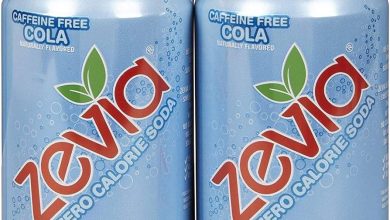Nutritional Profile of Raw Salmon (Pink)
Salmon, particularly the pink variety, is renowned for its high protein content and essential nutrients, making it an excellent choice for a healthy diet. Here’s a detailed breakdown of the nutritional components found in a standard serving of raw salmon (100g). The information provided will give you insights into its calorie count, macro- and micronutrient values, and how this fish can contribute to a balanced, health-conscious lifestyle.
| Nutrient | Amount per 100g |
|---|---|
| Energy | 127 kcal |
| Protein | 20.5 g |
| Total Fat | 4.4 g |
| Saturated Fat | 0.81 g |
| Carbohydrates | 0.0 g |
| Fiber | 0.0 g |
| Sugars | 0.0 g |
| Calcium | 7 mg |
| Iron | 0.38 mg |
| Magnesium | 27 mg |
| Phosphorus | 261 mg |
| Potassium | 366 mg |
| Sodium | 75 mg |
| Zinc | 0.39 mg |
| Copper | 0.063 mcg |
| Manganese | 0.011 mg |
| Selenium | 31.4 mcg |
| Vitamin C | 0.0 mg |
| Thiamin (Vitamin B1) | 0.08 mg |
| Riboflavin (Vitamin B2) | 0.105 mg |
| Niacin (Vitamin B3) | 7.995 mg |
| Vitamin B6 | 0.611 mg |
| Folate (Vitamin B9) | 4 mcg |
| Vitamin B12 | 4.15 mcg |
| Vitamin A | 35 mcg |
| Vitamin E | 0.4 mg |
| Vitamin D2 | 10.9 mcg |
Health Benefits of Raw Pink Salmon
Pink salmon is an excellent source of high-quality protein, essential for muscle growth and repair. Each 100g serving provides 20.5g of protein, which supports the body’s need for amino acids, the building blocks of life. It is a lean protein source, containing only 4.4g of total fat, with a minimal amount of saturated fat (0.81g). This makes it a heart-healthy option for those looking to maintain a balanced diet.
Salmon also provides a good array of micronutrients that contribute to various bodily functions. The fish is rich in potassium (366mg), a mineral that helps regulate blood pressure and supports proper muscle and nerve function. Additionally, it offers substantial amounts of phosphorus (261mg) and magnesium (27mg), both of which play crucial roles in bone health and energy metabolism.
Rich in Essential Fatty Acids
One of the standout features of salmon, even the pink variety, is its omega-3 fatty acids content. While the information provided here doesn’t specify the exact amount of omega-3s, it’s well-known that salmon is a top source of these heart-healthy fats, which are essential for brain function, reducing inflammation, and supporting cardiovascular health.
High in B-Vitamins
Salmon is also a great source of B-vitamins, particularly Vitamin B12 (4.15 mcg), which is vital for red blood cell formation, nerve health, and DNA synthesis. The fish also contains niacin (Vitamin B3) at 7.995 mg, which is important for maintaining a healthy digestive system, skin, and nerves, as well as supporting the conversion of food into energy.
Additionally, the fish provides vitamin B6 (0.611 mg), which plays a key role in neurotransmitter function and helps prevent conditions like anemia.
Micronutrients for Immune Support
Salmon is a good source of selenium (31.4 mcg), a powerful antioxidant that helps protect the body’s cells from damage, supporting immune function and thyroid health. It also contains trace amounts of zinc (0.39 mg), a mineral that is essential for immune system performance, wound healing, and DNA synthesis.
Considerations for Specific Dietary Preferences
-
Allergen Information: Salmon is a common allergen, especially for those with fish allergies. If you or anyone in your family has a fish allergy, it is crucial to avoid salmon and other fish products.
-
Dietary Preferences: Pink salmon is a great choice for individuals following a low-carb or low-fat diet. It contains zero carbohydrates and is low in fat, making it suitable for ketogenic and other weight-management diets. Moreover, the fish is naturally gluten-free, making it a safe choice for those with gluten sensitivities.
-
Sustainability Considerations: When purchasing salmon, it’s important to consider sustainability. Opt for wild-caught salmon when possible, as it tends to have a lower environmental impact compared to farmed salmon.
Conclusion
Raw pink salmon is a highly nutritious, lean protein source that offers a broad spectrum of essential vitamins, minerals, and healthy fats. Whether you enjoy it in sushi, salads, or baked dishes, it’s an incredibly versatile ingredient that supports a healthy lifestyle. By incorporating salmon into your diet, you can boost your intake of protein, omega-3 fatty acids, and a variety of other essential nutrients that benefit your heart, muscles, bones, and overall well-being. Whether you’re focusing on muscle repair, heart health, or general nutrition, pink salmon is an excellent choice for a delicious and healthful meal.










